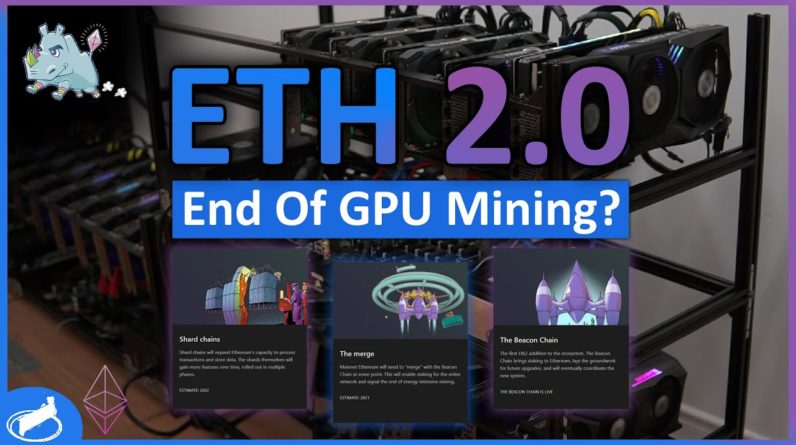– [Narrator] This is a
Bitcoin mine hidden deep in the mountains of Sichuan in China. (speaking in foreign language) – [Narrator] And its rival is on the other side of the planet at a former factory that used to make denim for Levi's. – You see the transformers
lined up on the outside. We have a lot of megawatts. – These two miners make money by providing the massive computing power that's required to process and record a high volume of
cryptocurrency transactions. Business was soaring as Bitcoin
hit new highs in early 2021. – It's hard to sleep. You go to bed at night and
you wake up and you look and you go, "Holy crap, it's still up. – [Narrator] Last year,
China controlled 70% of the global processing power that runs the Bitcoin network and that means the majority of the cryptocurrency's
global transactions are routed through
these computers in China and recorded by miners here.
So a group of US miners
is raising hundreds of millions of dollars
to win a larger share of Bitcoin's processing power. – When capitalism in the
States decides it wants to get into market, get into an industry, it moves heavy capital there. – [Narrator] They say
their work is also meant to protect Bitcoin. Industry insiders say
the Chinese government has already cracked down on
some crypto entrepreneurs and could potentially
disrupt global trading by asking miners in China to block certain users
from making transactions. – It's better for
cryptocurrency to be spread around the globe. So that Bitcoin cannot be manipulated by any single government. – I think there will be competition. There's more and more human resources, technology resources that we're putting into this particular new segment. – [Narrator] The battle
over Bitcoin mining will decide who controls
the infrastructure that powers the cryptocurrency.
(speaking in foreign language) – [Narrator] Yulong Liu started mining during the previous Bitcoin rally in 2017. And this is one of the sites he works with that has mined about 8,000 Bitcoins over the past three years, generating about $28 million in revenue over that time period. (speaking in foreign language) – [Narrator] Miners
need cheap electricity, which is abundant in some
parts of China thanks to dams and coal power plants that were built by the
state in the past decade. That electricity then powers fast machines that are necessary to
solve mathematical problems in order to eventually mint new coins. China is home to the vast majority of mining equipment production and so miners like Liu
always have speedy access to the best technology, like this cooling system.
(speaking in foreign language) – [Narrator] But the
industry in China lives with uncertainty. Liu asked to keep the location of the site a secret because
he says he's not sure if the government will crack down one day. While mining itself isn't illegal, virtual currency trading and crypto exchanges are banned in China because they're seen as risky to the country's financial system. In the past few months, Bitcoin industry insiders have said that Beijing accused some Chinese miners of money laundering and froze their credit cards, making it difficult for
miners to pay operating costs. The Chinese government did not respond to a request for comment. So to help miners develop their business despite the risks, Liu offers loans so miners don't need to go through Chinese banks. His company Babel Finance
lends cryptocurrencies to about 300 miners, including the owners of this site.
– So that they can purchase more equipment at a lower cost and then maintaining the machine itself, including repairs. – [Narrator] And Chinese miners are now facing growing
competition from overseas. – In the United States, we have massive infrastructure, power infrastructure and
building infrastructure that's already been built out and we can convert facilities into large data mining facilities. – [Narrator] Russell
Cann is an American miner who scouts the US for abandoned factories and converts them into mining facilities. His goal? Raise cash to develop
industrial-scale mining in the US where until a few years ago, most miners ran small DIY operations.

– [Xander] This is my
housing for my computers so that the heat is vented outside. – [Narrator] So Core Scientific has built a team with former executives from Microsoft and Myspace and put together an
ambitious business plan. – We have Ernst & Young
audit the financials. We have a strong balance sheet. We check a lot of boxes
for institutional investors that a Chinese miner does not check. – [Narrator] The strategy worked. In the past two years, the company has raised $95 million and secured a $20 million loan to install mining rigs in facilities including a former denim
factory in North Carolina and a former carpet factory in Georgia. Core Scientific's power infrastructure can handle the latest mining equipment, which Cann says usually
consumes approximately 100 megawatt hours of
electricity to mine one Bitcoin. That's the same amount of electricity used to watch television
continuously for about 98 years. And tunnels that were once used to cool the factory are now being used to keep chips from overheating.
– We've got the ability to process 200,000
gallons of chilled water through these pipes to
keep the temperature in the building down. – [Narrator] Cann hopes all
this will help him offset a long-running technological disadvantage. He was usually about four
months behind his Chinese rivals when it came to accessing the latest rigs and the price tag was
sometimes 50% more expensive. Others are using the
same playbook as Cann, creating corporations
that attract the support of institutional investors who then help fund high-tech mining sites. Industry insiders and academics who study mining say that the US efforts can
be good for the future of the cryptocurrency because the original goal of Bitcoin was to create a currency that couldn't be controlled by one entity.
– The dream was that we
would reimagine finance without gatekeepers and what did we get after 11 years? We got different kind of intermediaries. Now mostly nameless, mostly
under the covers in China. – [Narrator] Emin Gun Sirer
runs a blockchain startup and is also an associate professor at Cornell University. He studies the vulnerabilities
of cryptocurrencies and says Beijing might
intervene in the market. – [Emin] This is an enormous issue. These miners, they could
receive injunctions that compels them to act in a certain way. – [Narrator] One request he says could be to ask miners
to exclude certain people who want to spend or accept
Bitcoins in the network, essentially blocking transactions. This is what Bitcoin
academics call censorship, similar to how content and accounts can be blocked on social
media platforms in China. – The Chinese government would say that the money at certain addresses must not move and it
compels the Chinese miners to not include certain transactions so they can selectively
sensor certain users of a blockchain.
– [Narrator] The Chinese
government did not respond to a request for comment. Babel Finance says if miners in China are asked by the government
to intervene in the network, they would have to comply. But that would slow down their operations and eventually diminish their
global processing power. But US miners aren't
immune to facing scrutiny from financial regulators at home that have proposed plans to hold the industry to
the same standards followed by traditional financial institutions. The more immediate resistance to US miners could come from
local communities concerned about the environmental
impact of Bitcoin mining. – Bitcoin mining consumes enormous amounts of energy so all energy
that goes to miners is energy that's being directed away from other more useful uses.
– [Narrator] Cann says nearly
half of the electricity used by Core Scientific comes
from carbon-free sources. Because China's miners aren't part of a corporate structure like in the US, Liu says that they can operate faster and spend less on operating costs. – If you multiply the operational costs, China still has the advantage. China will be on the front
of the curve into the future. – 2021's all about expansion and we've built infrastructure, we've built the software,
we've built the team to be a long-term player in this market. (upbeat music).


![[8GPU Mining Case] 8 X 3060 GPUS with two CPU, ETH Mining Rig Case 3060 Best Mining Motherboard X79 3 rootF IMG 626ad36770423](https://cryptomarkethq.com/wp-content/uploads/2022/04/rootF_IMG_626ad36770423.jpg)




